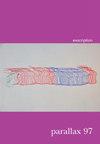简介:想象社区,多语言
IF 0.1
4区 社会学
Q4 CULTURAL STUDIES
引用次数: 0
摘要
就在几年前,我们的一位语言学同事试图寻找只会说荷兰语的人。事实证明这几乎是不可能的:大多数潜在的研究对象承认,他们有足够的英语能力进行日常对话,或者说一种特定的地区语言,或者一种散居语言,或者以另一种方式,在生活中似乎会使用各种语言和语言域。这种情况可能是荷兰- -一个拥有国际经济的小国- -特有的,然而,在我们看来,当代世界的特点是越来越多地使用多种语言,并越来越重视多种语言。这一新兴现象不仅揭示了语言多元化在全球和地方交流模式中的普遍存在。这也促使我们去探索多语言对西方人(如果不是全世界的人)如何想象彼此之间的联系的影响。不同语言代码的共存如何重新定义说话者的集体忠诚?文学和美学表征是如何象征语言多样性所带来的多重识别机制的?它们对我们理解历史上依赖地缘政治和语言界限的国家框架之外的社区形成有什么影响?本文章由计算机程序翻译,如有差异,请以英文原文为准。
Introduction: Imagining Communities, Multilingually
Only a couple of years ago, one of our colleagues in linguistics was attempting to find monolingual speakers of Dutch. This proved nigh impossible: most potential research subjects confessed to having a sufficient command of English to hold everyday conversations, or spoke a specific regional language, or a diasporic language, or in another way appeared to move through various languages and linguistic registers in life. This case might be uniquely specific for the Netherlands – a small country with an international economy –, yet it appears true to us that the contemporary world is increasingly characterised by, and appreciative of, multilingualism. This emerging phenomenon reveals more than the pervasiveness of linguistic pluralism in patterns of communication both globally and locally. It also prompts us to explore the implications of multilingualism for how people in the West, if not worldwide, imagine the links between one another. How does the coexistence of different linguistic codes redefine speakers’ collective allegiances? How do literary and aesthetic representations symbolise the multiple identification mechanisms enabled by linguistic diversity and what do they entail for our understanding of community formation outside the frame of nationhood, which historically has relied upon geopolitical and linguistic delimitation?
求助全文
通过发布文献求助,成功后即可免费获取论文全文。
去求助
来源期刊

Parallax
Multiple-
CiteScore
0.50
自引率
0.00%
发文量
0
期刊介绍:
Founded in 1995, parallax has established an international reputation for bringing together outstanding new work in cultural studies, critical theory and philosophy. parallax publishes themed issues that aim to provoke exploratory, interdisciplinary thinking and response. Each issue of parallax provides a forum for a wide spectrum of perspectives on a topical question or concern. parallax will be of interest to those working in cultural studies, critical theory, cultural history, philosophy, gender studies, queer theory, post-colonial theory, English and comparative literature, aesthetics, art history and visual cultures.
 求助内容:
求助内容: 应助结果提醒方式:
应助结果提醒方式:


